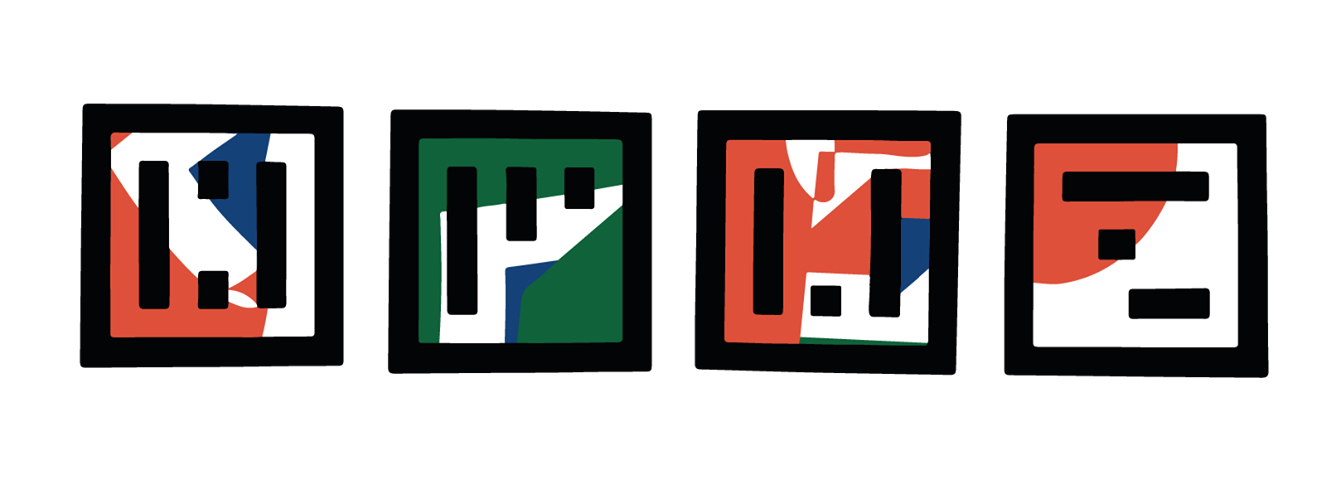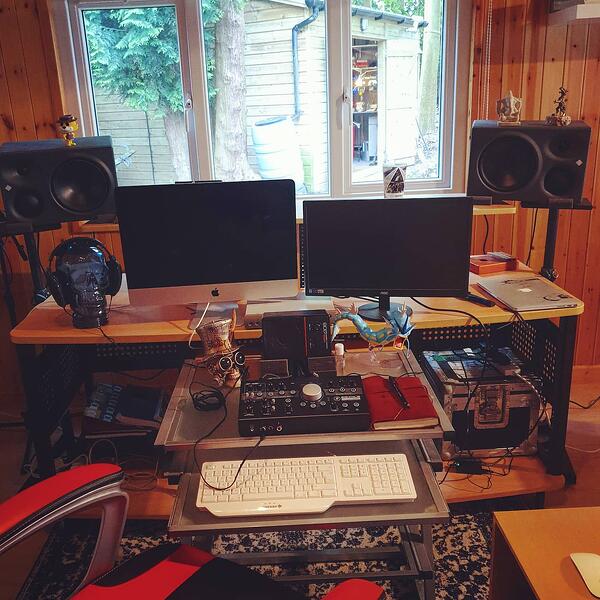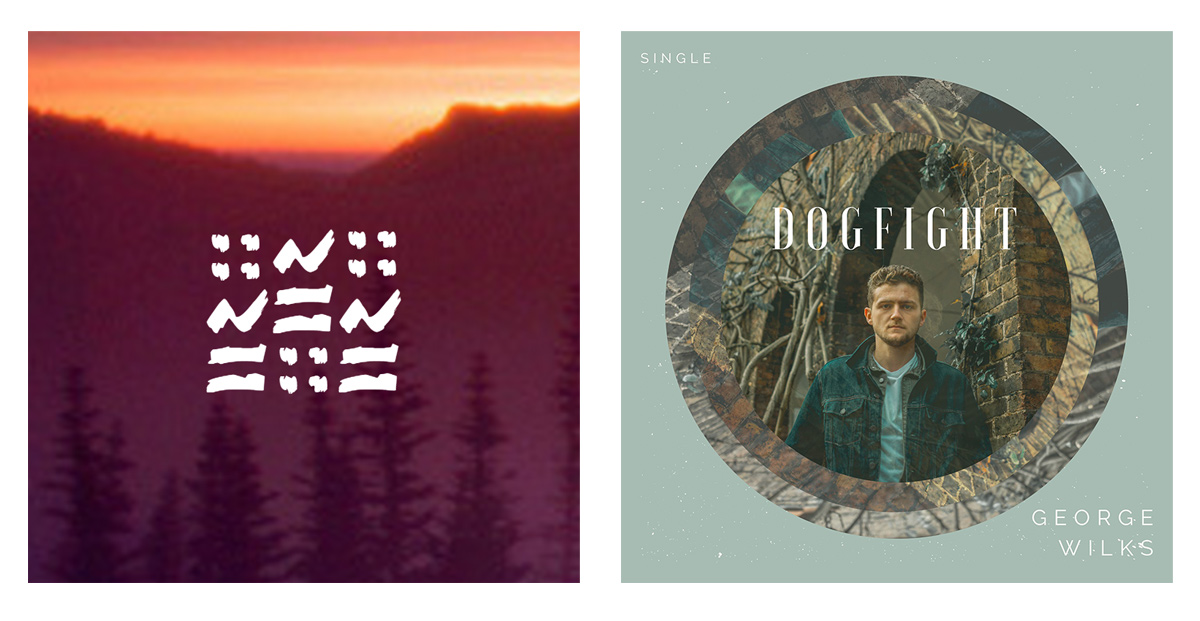Since graduating from dBs Bristol in 2019 Tobias Crane has been keeping busy. Landing a job at post-production house Molinare before the beginning of the year, Tobias has also launched his own business Opus Mastering.
Where it all began
 Tobias first discovered his love for music during his A-Levels. After being given a 'sample' of Logic Pro by a friend, he quickly got hooked, for which he admits his academic performance may have suffered!
Tobias first discovered his love for music during his A-Levels. After being given a 'sample' of Logic Pro by a friend, he quickly got hooked, for which he admits his academic performance may have suffered!
After a year of honing his skills, Tobias joined dBs Music, initially hoping to be a DJ, but soon found himself enamoured with recording, audio-visual, Foley and post-production, prompting a switch to our BA (Hons) Music Production & Sound Engineering degree.
A self-professed networker and people pleaser, Tobias pursued his love for audio after graduating; mastering his friends tracks for free to build his experience before taking the plunge and forming his own company, Opus Mastering.
We caught up with Tobias to learn about the key steps to starting your own mastering company and the hurdles he had to overcome along the way.
The five key steps to starting Opus Mastering

Starting his own business didn't occur to Tobias until his third year at dBs Music. Through a combination of his mastering module and a guest lecture from Abbey Road engineer, Christian Wright, the world of mastering took hold of him.
Yet starting your own business is a daunting task, and one that warrants a lot of forethought and planning. We asked Tobias to highlight the key steps to starting your own business and the lessons he learned along the way.
1. Practice
"I practised mastering other people's music for free. I think I worked on a few different tracks as I knew that people would come back with useful feedback. I'm quite a people-pleaser when it comes to mastering and music, so once I heard good feedback from friends I felt that I needed to take it to the next level."
2. Research
"Before I even made a page on Facebook and advertised myself as a mastering engineer I did a ton of research on how to do it properly, what's the best way to start, and how to listen to music differently to mixing, because it's such a different experience. So I had to train my ears to listen to a project differently, so instead of looking at individual trees, I'm paying attention to the whole forest. It's quite difficult to do that when you start."
3. Invest in new equipment
"Eventually it got to a point where I needed to invest in new equipment because I didn't feel comfortable charging people for mastering on a pair of HD600s and a pair of Yamaha HS5s and a Scarlett 2i2 interface - it just doesn't make sense. So I had to update my equipment so I could hear everything properly and feel more comfortable about eventually charging people because I know I can do a great job on the system that I have."
Tobias's current rig:
- Stereo Monitors: Neumann KH 310 A
- Mono Monitor: Fostex 631b - for emulating what a mix would sound like on a Bluetooth speaker.
- Audio Interface: Prism Sound Lyra 2 - "If you want to get into mastering, oh my God does it change your life. It's so clear and changes everything. I used to work on HS5s and using this is absolutely night and day, I can hear everything."
- Additional gear: Mackie Big Knob

4. Client communication
"Every skill that you learn, especially in client services is transferable to lots of different areas. It can be quite difficult at Opus when you're talking to people over email because you're not talking face to face and it's hard to get an idea across on an email without sounding like you're ordering them to do it.
"You have to use language like 'I would highly recommend…' and things like that. You have to learn how to communicate with clients because at the end of the day it's not your work. With mastering you can be a little creative with it and make it sound as good as it can, but it's not yours, it's the clients. They're the ones that have put all this time into creating it so you can't push your ideas onto them because it's their child. It's learning the balance between where you want to take the track, and based on the desires of the client, finding compromises where both sides are given attention."
5. Build your client base

"Working with TVNDRA and George Wilks actually came from dBs Music alumni. TVNDRA is a friend of mine, we used to live together in second and third year of university and George Wilks came from Harrison White. I was originally mastering George's music for free before I started charging. The only reason I've been able to push Opus through word of mouth is from the friends I made at dBs. It's starting to take off now, but that's only because the people I know at dBs have trusted me with those early projects.
"Even if someone doesn't want their music mastered, I'm happy for people to contact me for feedback on their track. Whenever someone sends me a track I will always call attention to the parts that sound amazing, but I will also say what I would do with the track should they want me to master it. Just to show that I do really like their music, but I also know how I can make it even better. Some clients don't like my ideas and they'll fire back their thoughts and we come back to that balance and compromise."
The challenges along the way
"One of the biggest hurdles is dealing with first-time clients that aren't part of your friendship group. Obviously when I was working with people at dBs that I knew well you can talk to them in an informal way. As soon as someone contacts you from a totally different area it becomes a different thing. You have to be way more formal, provide lots of information and be trustworthy, which I found to be a really difficult thing to accomplish.
"Short of being recommended, if someone just sees your ad on Facebook they don't know who you are. My page has just over 30 likes so it's not like a thousand people like it and someone can take comfort in that. There's a real worry that they might think I'll just take their money and not do the job. So you have to learn how to approach them through messaging and put them at ease with this kind of thing, which has been a real hurdle for me.
"While we're talking about getting paid I should mention that as soon as you mention money some people just don't reply to you. I don't like talking about it, but it's a business at the end of the day and you have to."
Tobias' top tips
"Do as much research as you can, and I know it sounds boring or mundane, but you don't have to do it in massive chunks. Have a break, don't take it too seriously - the best way to learn is jumping into it. I realised that there's only so much that you can learn without having things to actually work on.
"Don't be afraid to reach out to people if you need help, if it's a friend at university or another producer or even a director if you want to get into short films. Just ask for an old project to practice on. There's no reason for them to say no. Then give it a go, and pass it back to them and if they're really impressed with it then happy days, if they're not it doesn't matter, just keep going.
"Eventually you'll get to a point where you're at the level you want to be and then you can make a page, do the whole online marketing strategy and push it as much as you can. The most important thing is to just start."
FIND OUT MORE
Facebook
Instagram
To learn more about the world of mastering check out our 6 top tips to mastering your own music


